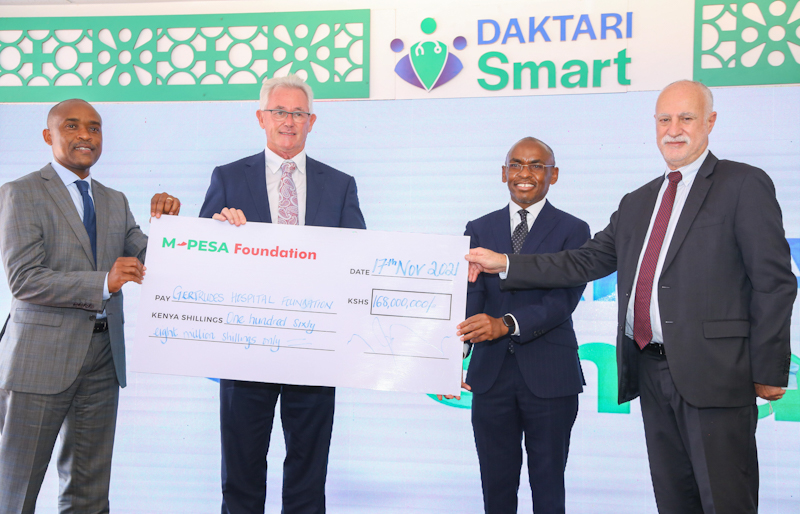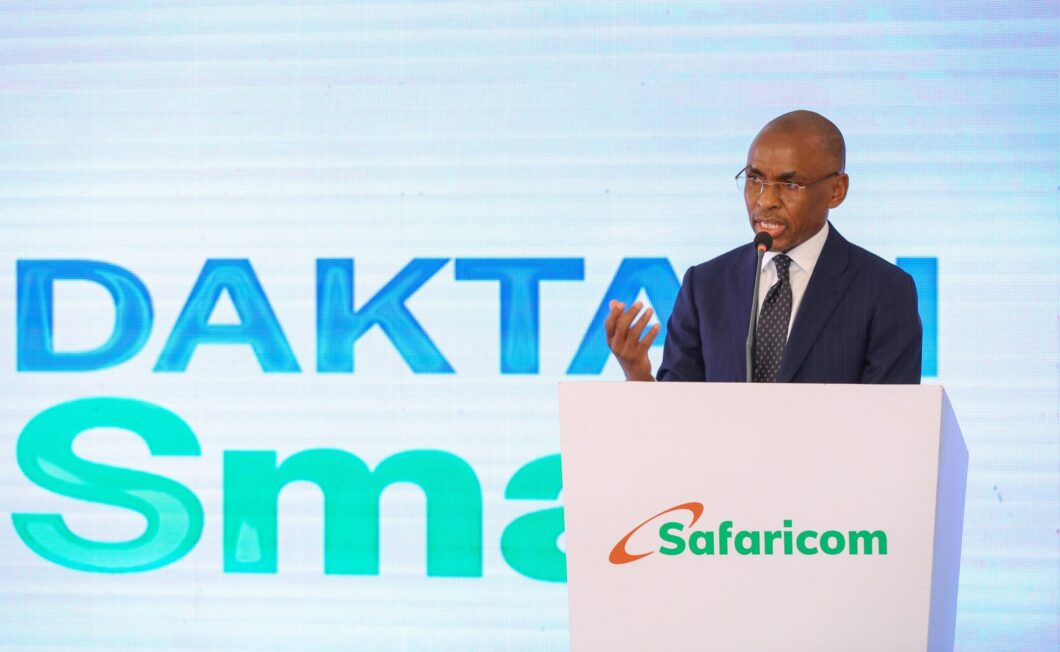A new partnership aimed at reducing the number of referrals of sick children, optimizing the capacity and reach of healthcare delivery systems by allowing health facilities have access to specialists.
The partnership, announced Wednesday, between M-Pesa Foundation and Gertrude’s Children’s Hospital to launch Daktari Smart, a Telemedicine program.
M-PESA Foundation has committed over Ksh 168 million towards the initiative while Gertrude’s Children’s Hospital a leading paediatric facility in the region offering quality and evidence-based healthcare to children, will invest over Ksh35 million in the next 3 years.
The program targets over 32,000 children in Samburu, Homabay, Baringo and Lamu counties.
“I believe Daktari Smart will not only transform the lives of children; it will save lives,” Said Peter Ndegwa, Safaricom CEO during the launch.
“Technology has the power to improve health outcomes, specifically access, quality, experience, and to improve the efficiency of care.”
“Not only are we coming in by funding the project through M-PESA Foundation, but with our 4G internet coverage spread across the country, we are promising reliable connectivity needed for the telemedicine platform to work.”
Daktari Smart is a kit that compromises electronic medical devices such as the Electronic Stethoscope, Vital Signs Monitor, Derma scope Camera, Ultrasound Machine, Otoscope (examine the condition of the ear canal and eardrum) and the electrocardiogram (ECG) used to check the heart’s rhythm and electrical activity.
Unlike the conventional video conferencing, Daktari Smart allows the health care worker at the local partner health facilities, to place the electronic medical devices such as a stethoscope or vital signs monitor on the patient.

According to the Kenya Medical Practitioners and Dentists Board, the doctor to patient ratio currently stands at about one doctor for every 6,355 people which leads to difficulties in getting access to a qualified medical professional. This ratio increases when it comes to specialists. The participating counties in this program have only one or no paediatrician to treat children in these areas.
Mr Ndegwa said healthcare access remains one of Kenya’s and in fact Africa’s biggest challenges. With one doctor for about 6,300 people, getting access to a qualified medical opinion is a privilege some of us may take for granted, but many do not get to enjoy.
“Beyond access, saving for healthcare emergencies is a tough balance for families: Do they save for daily sustenance, school fees and other household needs or put aside money for medical care?
He also exhorted the private sector to partner with the state to help overcome challenges within the health sector.
“Overcoming these and other health challenges may not be easy, but it can be done. As the private sector, we cannot – and should not – let governments shoulder this burden alone,” he said.
According to Vodacom’s e-health policy paper, found out that there has been an exponential rise in the number of people engaging with digital health services through their smartphones across Africa.
Going ahead, as Safaricom transitions to become a purpose-led technology company by 2025, Mr Ndegwa said one of their pillars is to promote further socio-economic inclusion by expanding and digitising select areas including healthcare.
The telco has integrated 9 of the 17 Sustainable Development Goals into its operations, including Goal 3 on good health and wellbeing for all.
“In line with this, we have committed to leverage our mobile technologies and our Foundations to transform lives by improving access to quality and affordable health care services. From a Corporate Social Investment perspective, our two Foundations, Safaricom Foundation and M-Pesa Foundation continue to invest heavily in access to quality, affordable and accessible health services especially for women and children,” Ndegwa says.
“We believe that by forging stronger connections between companies such as ours & the healthcare industry, we can support commercially sustainable health services that transform lives of people in need and promote the wellbeing of our communities.
As a technology company, we might not have the health expertise required to come up with the solutions on our own. However, by working closely with the government and organizations such as Gertrudes Hospital, we can scale these solutions so that people see technology solutions as part of the healthcare ecosystem.”
Michael Joseph, Chairman, M-PESA Foundation reiterated that the foundation’s mission is to make a lasting contribution in society by focusing on four main sustainable initiatives: Health, Education, Environmental Conservation, and Integrated livelihoods.
Safaricom Bets on Education, Agriculture and Health to Drive Growth
Through the Daktari Smart program, besides improving access to health care, Community Health Volunteers, social workers and health workers in the targeted counties will also benefit from training via video conferencing.
“This will build their skill set and capacity to administer specialized health services to their respective communities,” said Michael.
“We also hope to improve the skills of over 1,000 community health volunteers and 1,200 workers involved in pediatric care.”
He also said the foundation plans to establish regional telemedicine centres with electronic medical devices which will act as the main pediatric referral centres.





2 Comments
Pingback: Privatization of Health Care in Kenya Limits Access, Study Finds
Pingback: Novartis Opens Virtual Innovation Hub in Nairobi to Accelerate Healthcare Solutions